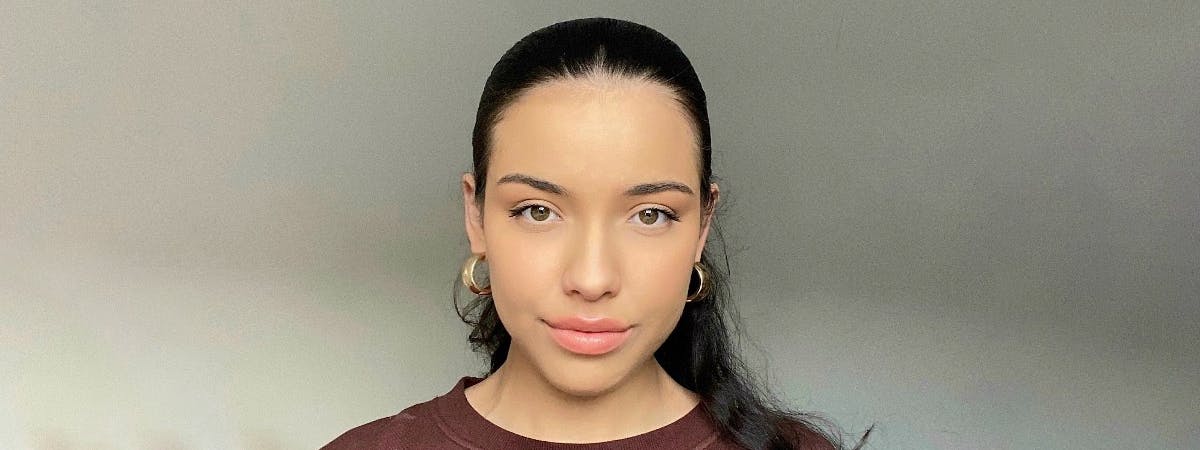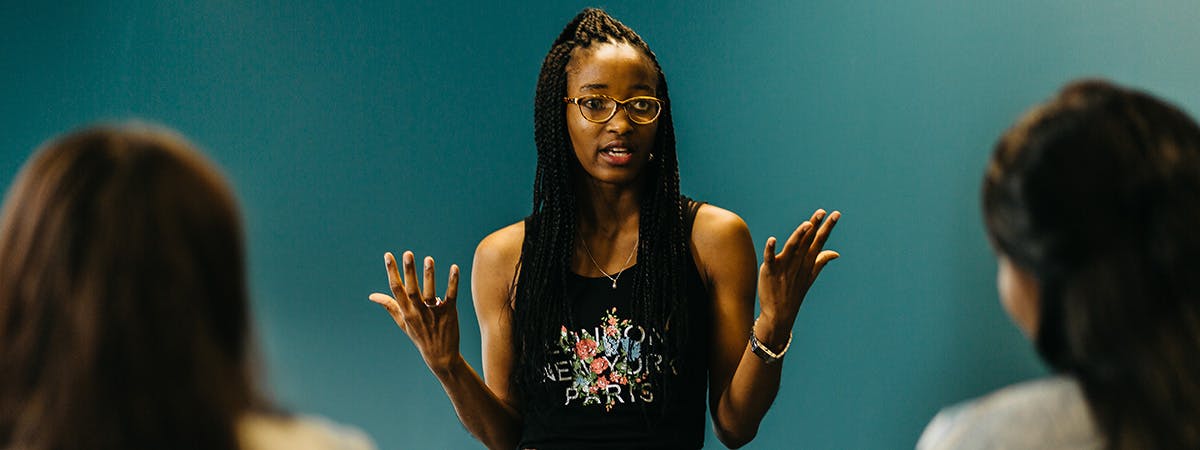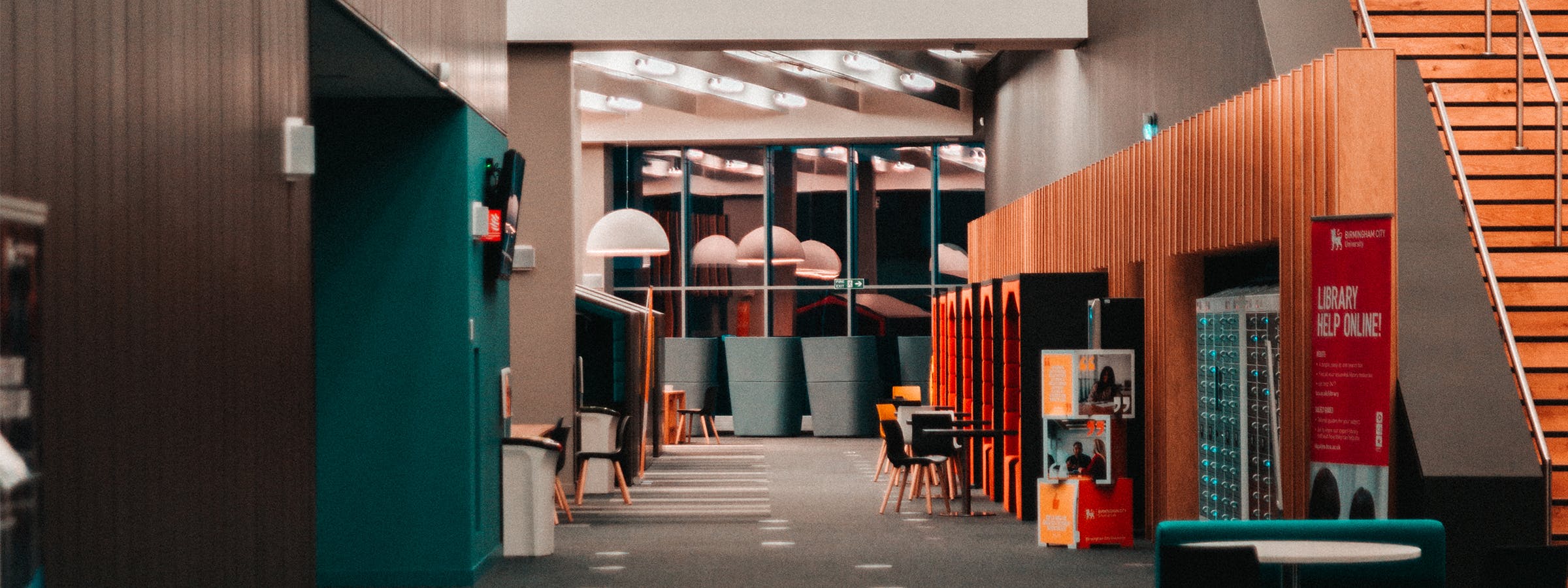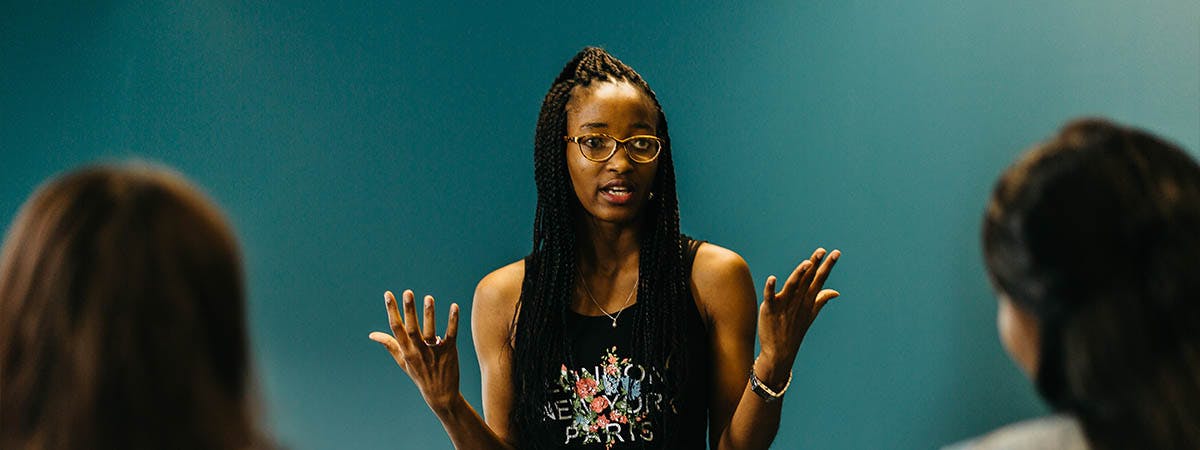Psychology students here at BCU get the opportunity to undertake a work placement as part of their studies. Work placements are a fantastic way to gain industry-level experience, network with employers in your field, and put the skills you’ve learnt on your degree so far into practice.
We caught up with BSc (Hons) Psychology with Criminology student, Chyna Cobden, who gave us insight into the placement she undertook with St Andrews Healthcare.

Which company did you do your placement with?
I did my placement with St Andrews Healthcare. They are a charitable mental health service that work alongside the NHS to provide a range of specialist inpatient and community mental healthcare services, education, and research that helps to improve the lives of people with complex mental health needs.
What did your placement involve?
I worked as an honorary assistant psychologist on a ward called Rose. Rose ward is a medium secure forensic ward for men aged 18-65 with a formal psychiatric or neurological diagnosis. Some of the patients I worked with had acquired or traumatic brain injury, epilepsy, huntington’s disease and parkinson’s. I worked alongside a multidisciplinary team consisting of psychologists, psychiatrists, doctors, occupational therapists, nurses, health care assistants, physiotherapists, and more. Our aim was to work together with the patients to deliver a patient-centred approach to their rehabilitation.
COVID was very prevalent during my placement, but luckily, I was able to complete my placement on site and worked one day a week from home. My role on the ward involved completing neuropsychological assessments, writing reports and risk assessments on patient’s presentation, running therapy sessions, 1:1 sessions, and activity sessions to help with neuro rehabilitation, alongside generally helping around the ward where I could. I also aided with a research project whilst there. My days at home were spent researching, planning, and devising a twelve-week therapy group session called ‘Stop and Think!’, a programme known to aid brain injured patients with problem solving in an aim to reduce aggressive behaviours.
What was the most valuable thing you learned?
I learnt how much of an impact a place like Rose ward can have on a patient’s life and mental wellbeing. Often you hear of brain injury as extremely difficult to rehabilitate. Whilst this is somewhat true and may take quite some time, it is still possible when provided with the correct treatment and therapy. Patients on a medium secure unit can be very challenging, especially when they first arrive, but the improvements they can make when provided with the correct care are profound.
During the time I was there, four of our patients moved to a less secure ward, meaning they had made significant improvements in their presentation and rehabilitation whilst at Rose which is all down to their own motivation as well as the work the team do.
Did you face any significant challenges during your placement?
Due to unforeseen circumstances, I started my placement later than planned. This meant that when I arrived, I found it relatively difficult to find where my role fit in with the rest of the team. Also, as my placement was during lockdown, the ward was extremely short of staff at times due to sickness, meaning I would have to help when and where possible. This meant helping out in roles that I wasn’t familiar with. Regardless, it was all great experience, and I wouldn’t have changed it.
Psychology Courses
Find out more about our courses
What was the highlight of your placement?
Definitely the patients! Going to work on a forensic neuropsychiatric ward can sound quite scary to some people, but once you meet the patients and realise that you have a great team of people supporting you, this isn’t in the forefront of your mind. Obviously there were times that were challenging, but being able to see how much of an improvement you are making to these people’s lives and the enjoyment they show whilst you are helping them is amazing.
How did BCU help you in undertaking your placement?
I was placed with a placement supervisor throughout my placement. My supervisor was great and always available if I needed support with anything. We also had regular meetings via Microsoft Teams which the Clinical Psychologist and Assistant Psychologist from my ward would also attend to speak about my progress. It was almost like a mini appraisal and gave me a good perspective on my progress as well as areas I could be making improvements in whilst on placement.
Do you think your placement has benefitted your career prospects?
100 per cent. I am aspiring to follow the career of a clinical neuropsychologist. This means I need to get onto the Clinical Psychology doctorate which is an extremely competitive course. Being able to finish my undergraduate degree with almost a year of assistant psychology experience will put me at a huge advantage in the world of clinical psychology. The experience I gained whilst there will support me greatly after I graduate, and I made lots of connections in clinical psychology which is great.
Do you have any advice for students starting a psychology placement?
The first bit of advice I would give would be to prepare a little before you go to your placement. Do some research on the place you will be working at as it will make the transition a little easier. Secondly, keep a diary or something you can refer back to if you need to. For me, I will need to remember a lot of the practicalities of working as an assistant psychologist on a ward when going through the interviewing process for the clinical psychology doctorate and so I wrote this down in case I forget.
Lastly, don’t stress. I remember when I first started my placement, I felt like I was playing catch up with the other members of staff but that was only because it was a fast-paced working environment that everybody else was used to. Within the healthcare sector there is a lot of underfunding and overly worked staff meaning sometimes you will only get brief training but don’t let this stress you out. The best way to learn is through experience and through this everything will fall in to place even if it takes some time.

Open Days 2022
Our Open Days are designed to give you all the information you need about the University and the experience you will have as a student at BCU.
Register now




